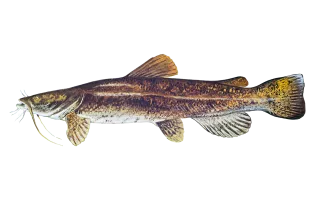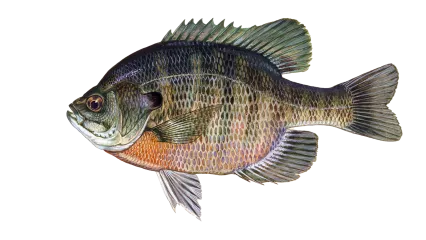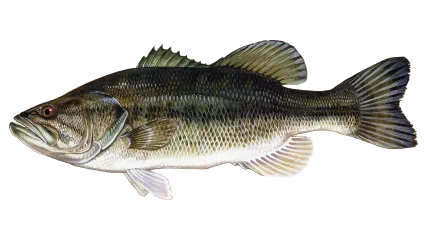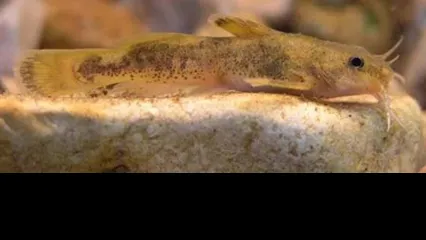
Description
Common in most large impoundments and streams.
The flathead catfish does not have a forked tail, unlike the blue catfish or a channel catfish that have a forked tail.
Facts: Flathead catfish are a favorite of many anglers. Most are taken while trotlining, juglining, limblining, or noodling. Flatheads can exceed 100 pounds.
Habitat
Adult flatheads are found near cover in larger pools and deep holes. They like old brushy tangles, submerged logs, and undercut banks.
Food sources: Flatheads feed mainly on live fish and crayfish. Other common foods include mussels, snails, and insects.
Life Cycle
Spawning usually takes place in late May or early June when the water temperature reaches 75 degrees F. Hollow logs, overhanging underwater ledges, or holes under mud banks are typical nesting places. Females lay about 10,000 eggs each. Males guard the eggs against intruders, including the female. Eggs hatch in six to 10 days as determined by temperature. After hatching, the fry is attended for a short time by the male as they feed in a dense school.


